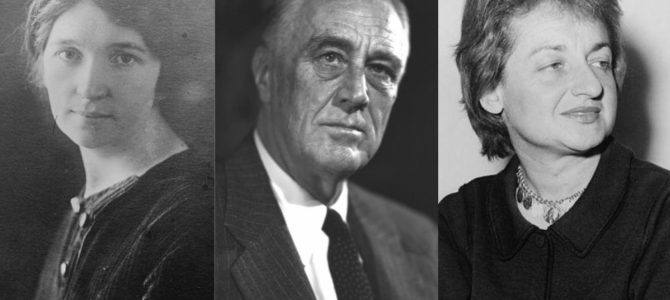
The heroes of cancel culture can’t survive their own standards. We’ve already seen modern celebrities like Kristen Bell — who participated in a video apologizing for her white privilege and is by no accounts a conservative — criticized for promoting “colorblindness” by writing a book that’s supposed to teach kids not to judge people based on their skin color.
And as protestors drag monuments to the ground, no historical figure is immune either. Angela Rye informed CNN that statues of Thomas Jefferson and George Washington should be removed, since both Founding Fathers were slave owners. Even anti-slavery heroes are indiscriminately targeted by the mobs, from President Abraham Lincoln to abolitionists like Matthias Baldwin to the (all-black) 54th Massachusetts regiment of the Union army.
As the defacing of monuments to Lincoln, Baldwin, and the 54th regiment attest, any historical figures — even if they actively fought against racists — are fair game. But even barring these especially ignorant incidents, the standard used to cancel figures like Washington and Jefferson can be applied just as fatally to progressive heroes. Here are a few whose complicated legacies deserve reflection.
Margaret Sanger
Sanger, who Time Magazine retroactively named 1925’s “Woman of the Year,” is celebrated by the left as the founder of Planned Parenthood and an early women’s rights activist. Planned Parenthood lauds her as a “woman of heroic accomplishments,” and a “trailblazer in the fight for reproductive rights.”
But Sanger, as Time also admits, was a “vocal eugenics activist.” She has faced criticism for targeting minority populations in her attempts at population control. “We do not want word to go out that we want to exterminate the Negro population,” she wrote in a 1939 letter. While some contest the intent of that letter, the legacy of Ms. Sanger — who also spoke at a Ku Klux Klan rally in 1926 — is tainted at best.
Planned Parenthood excuses her racist beliefs with the gentle acknowledgement that “like all heroes, she was also complex and imperfect.” Oddly enough, the left isn’t interested in recognizing that heroism and imperfection can be compatible in less woke figures.
Franklin Delano Roosevelt
Historians ranked progressive hero President Franklin Roosevelt as the third greatest president in history, according to a 2017 C-SPAN survey. He’s also arguably the president that enabled the large-scale government programs that are now a central tenet of the Democratic Party’s platform.
FDR, of course, was the president responsible for the indefensible and racist decision to force American citizens of Japanese descent into internment camps during World War II. The Supreme Court in 1944 refused to condemn Roosevelt’s actions, although a dissenting opinion recognized that they fell “into the ugly abyss of racism.”
Lyndon Johnson
Not only was Democratic President Johnson the champion of the 1964 Civil Rights Act, which he signed as president, but he also helped pass the Civil Rights Act of 1957. He was, according to MSNBC, a “civil rights hero.” But he was also — according to MSNBC — a racist. Johnson would routinely use the N-word, even referring to the Civil Rights Act as the “n—– bill.”
Betty Friedan
Friedan, author of “The Feminine Mystique,” is championed by the left as a pioneering feminist and known as the “mother of the modern women’s movement” by some. But, as The Atlantic admits, Friedan’s famous book was “racist” and “classist,” since it focused on the supposed plight of middle-class white women. Friedan was also no friend to the LGBT community; she referred to male homosexuality as “a sinister source of cultural contamination” and derided lesbian women as a “lavender menace.”
Woodrow Wilson
President Wilson is almost remembered more for being a herald of progressivism than for leading the nation through World War I. The Democratic president spearheaded progressive reforms as the Progressive Movement swept through America in the early 20th century. He was also unquestionably racist. (Though, ironically, Wilson often presented his political positions in morally absolute terms.)
Wilson tried to increase segregation in Washington D.C., and screened the pro-KKK movie “Birth of a Nation” in the White House. But historian Richard Rothstein in Newsweek insists we should “judge Woodrow Wilson’s racism by the standards of his time.”
John F. Kennedy
Kennedy, with his preppy charm and allusions to Camelot, has long been a liberal darling. But the playboy president used his position of power to pursue sexual relationships that no moral person, let alone a contemporary of the #MeToo movement, could condone. From actresses and strippers to a teenage White House intern and the First Lady’s own press secretary, Kennedy’s sexual pursuits were as endless as they were shameless. Bragging of his exploits, he even remarked that he would “get a headache” if he didn’t engage in sexual behavior once a day.
Martin Luther King, Jr.
MLK Jr. was, by all accounts, a real hero of the civil rights movement. But even this beloved pastor from Georgia is not unscathed by reports of inappropriate behavior. Last year, documents released by the FBI allegedly revealed that King “looked on, laughed and offered advice” to a friend who was in the process of raping a woman. Although the full FBI documents are sealed until 2027, the revelations threaten to undermine the clean image of the civil rights leader. (And, as the Kavanaugh hearings demonstrated, even an unverified allegation is enough to threaten to topple a public figure.)
But, David Greenberg of Politico points out, the newly published allegations against Dr. King “don’t negate the historic achievements for which he has long been properly celebrated.” And he’s absolutely right. Greenberg’s arguments, unlike those of a cancel culture all too eager to tear down history, acknowledge the presence of imperfection in every historical hero:
Even if the ugliest charges against King are bolstered by additional evidence, that doesn’t mean we should talk about renaming Martin Luther King Day, tearing down statues of him, or stripping him of his Nobel Prize. In recent years, we’ve had altogether too much wrecking-ball history—history that takes public or private flaws or failings as reason to cast extraordinary men and women out of our political or artistic pantheons. Historians know that even the most admirable figures from our past were flawed, mortal beings—bad parents or bad spouses, capable of violence or cruelty, beholden to sexist or racist ideas, venal or megalomaniac, dishonest or predatory. Awareness of these qualities doesn’t mean despising figures once held up as heroes. Rather, it gives us a more complete and nuanced picture of the people who shaped our world.
Greenberg recognizes that we don’t celebrate historical figures because we think they were perfect. And we aren’t shocked with a sense of betrayal when we find out they weren’t — because we know perfection is a standard no human being can be successfully held to. That’s not to say history doesn’t have villains. Rather, studying the heroes and villains of history teaches one of the oldest stories in existence: that of the struggle between good and evil, in the world and in the hearts of each historical figure. Those we rightly deem heroes are not made heroic by the absence of sin or mistakes. They are the ones who recognize the existence of evil and make it their mission to combat it.









